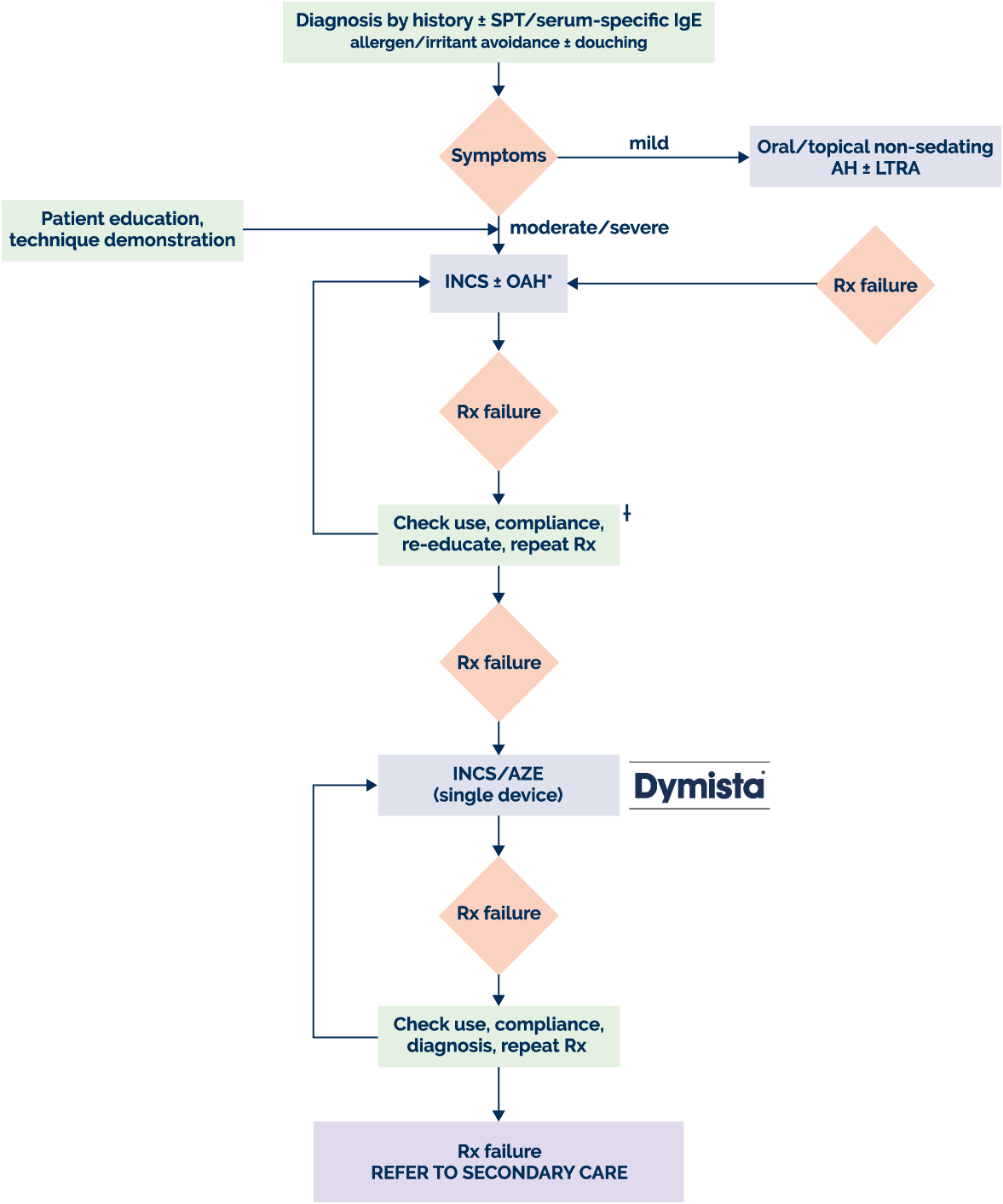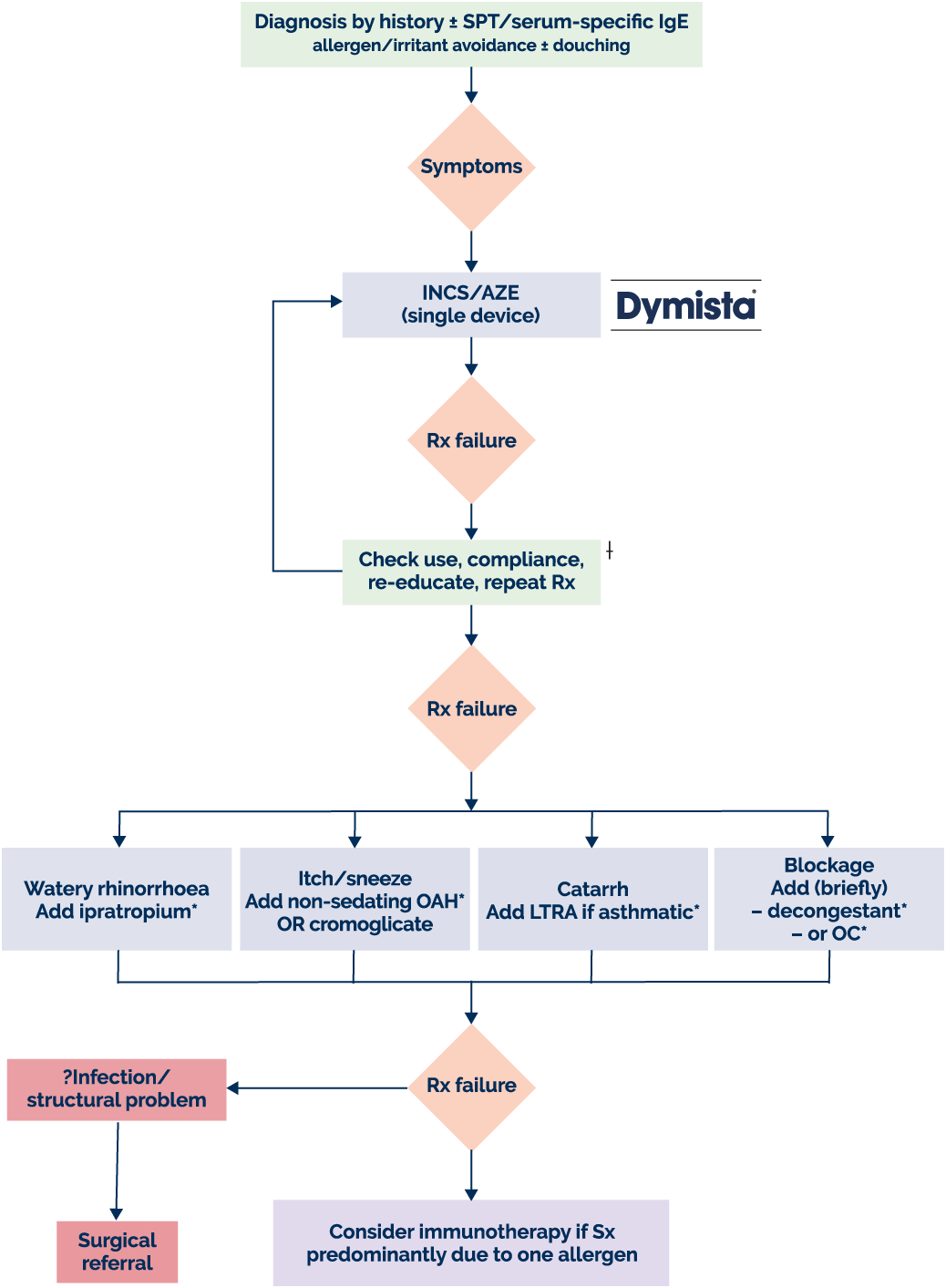Abbreviations
AH: anti-histamine; AZE: azelastine; IgE: immunoglobulin E; INCS: intranasal corticosteroid; LTRA: leukotriene receptor antagonist; OAH: oral antihistamine; OC: oral corticosteroid; Rx: treatment; SPT: skin prick test; Sx: symptoms.
*You may consider the addition of an OAH to INCS. However, scientific evidence shows that adding an OAH to INCS provides no additional benefit over INCS alone.
Adapted from Lipworth B, et al. 2017.1




